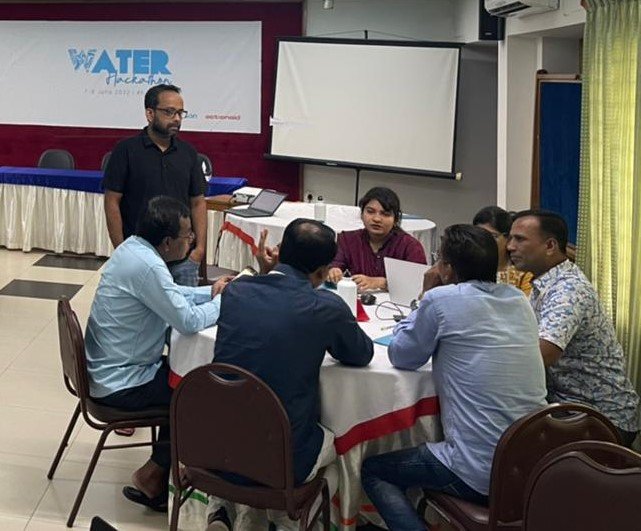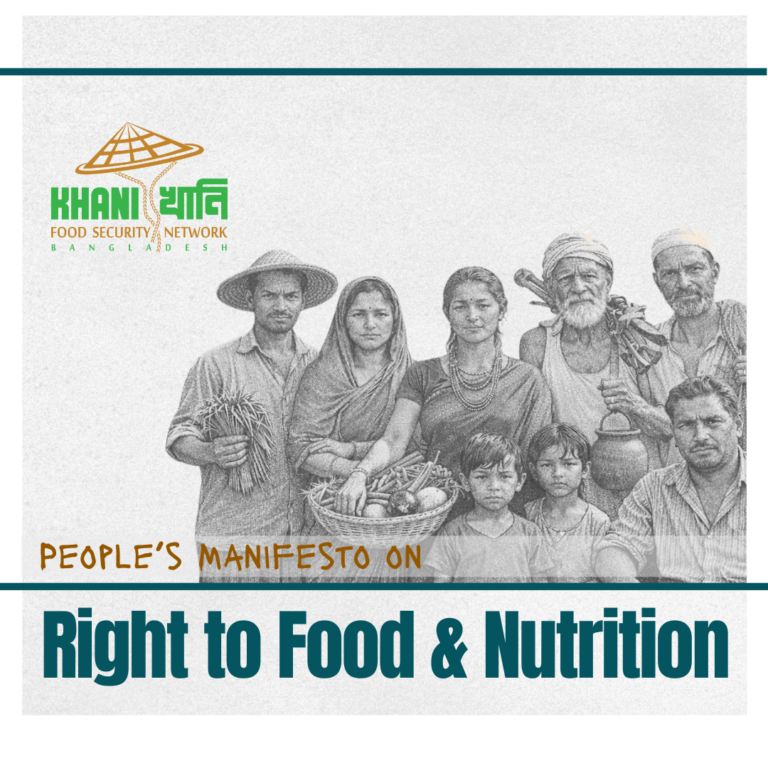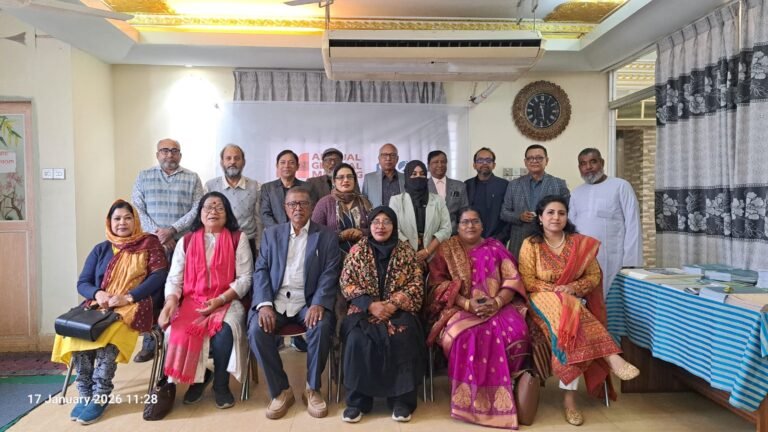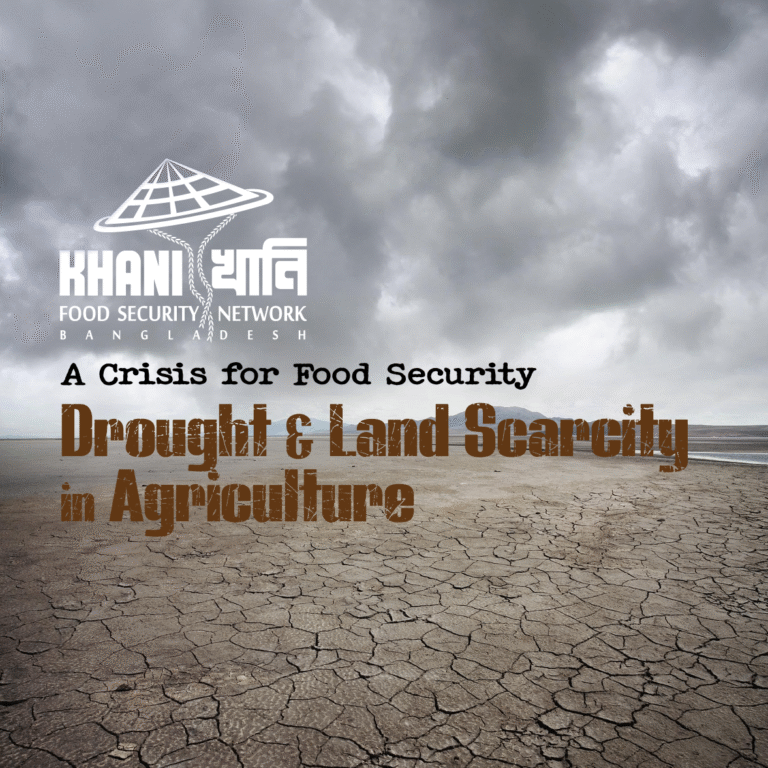Bangladesh has a long coastline in the Bay of Bengal and 76 Upazilas of 19 coastal districts are likely to be affected by the rise of sea level caused by climate change. The lives and livelihoods of the population are undeniably affected due to water salinity, arsenic, water logging, pollution, risks from climate change, and so on. It is urgent to sensitize the local policymakers, representatives, and government officials, and initiate mass campaigns and swift action to create public opinion on this crisis with the highest priority to ensure sustainable human health and socio-economic development of coastal communities.
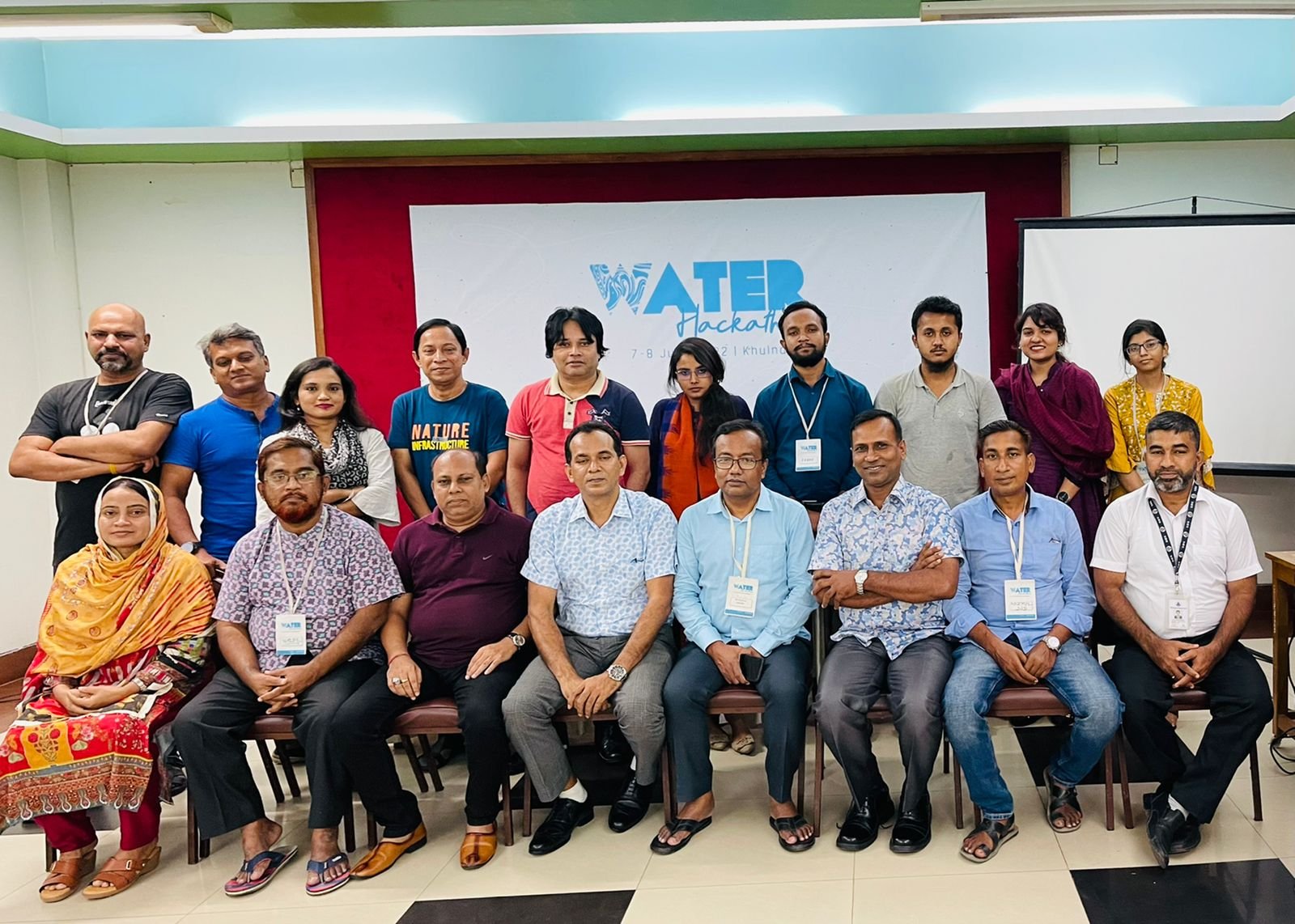
In this context, to create a mass campaign in ensuring drinking water for all in coastal Bangladesh, a two-day strategic planning workshop ‘WaterHackathon 2022’ was held at CSS Ava Centre, Khulna from 7th-8th of June 2022 jointly organized by Participatory Research & Action Network- PRAAN and ActionAid Bangladesh. A total of 27 Participants including local and national NGOs working on climate change, environment, and water rights issues in the coastal areas, experts, and media personnel participated in this workshop.
The workshop began with a brief introduction of the host organizations and also the core objective of this strategic planning workshop. In the inaugural speech, ATM Zakir Hossain, from Jagrata Juba Sangha (JJS) warmly welcomed the participants and thanked them for their time to come and for joining the workshop. Suvendu Bishwas from AAB shared the objectives of the training. Moving on, an overall picture of the water crisis in coastal Bangladesh and the urgency of the issue was shared by Gouranga Nandy in his inaugural note. The norms and other logistic details were shared by Umme Salma, Programme Coordinator of PRAAN. Nurul Alam Masud, Chief Executive of PRAAN anchored the entire workshop.
This two days workshop contained several sessions including Story of Water & life in Coastal Bangladesh, Discovering the Nexus between Water & Climate Change, Familiarity with Water Movements, Water Rights: Policy & Protection, Mapping water hazards and assess the risks, Scoping Opportunities, Youth for Water & Climate Session, Resource mapping, Strategy & Action, Branding, etc. Mohon Kumar Mondol Executive Director LEDARS, Programme Officer-Youth Mobilisation & Climate Action, AAB Suvendu Bishwas, Independent Researcher Mr. Gourango Nandy, CLEAN Executive Director Mr. Hasan Mehedi, Bangladesh Model Youth Parliament Chief Executive Mr. Sohanur Rahman, PRAAN Chief Executive Mr. Nurul Alam Masud facilitated the sessions on the workshop.
The participants were introduced to the burning crisis of freshwater in coastal Bangladesh through the sessions. In the context of the discussions, the speakers shared the reasons behind the crisis. Impact of the climate change, destruction of freshwater sources due to rising the sea-level and natural disasters, unplanned shrimp farming, excessive extraction of groundwater, arsenic and iron pollution, unplanned development project, lack of water preservation and management, lack of initiatives, and water wastage was mentioned as active reasons of the suffering of the coastal communities.
There lies a direct interlink between the water and climate change and a water crisis is a climate crisis. The participants were introduced to the history of ongoing water crisis-related movements in Bangladesh. The facilitators mentioned that the NGOs working on water crises are mainly project-based and are divided into small projects and short-term activities. Besides this, the community people think that this crisis will be solved by the NGOs as they initiated several projects. This is high time to make the community on this issue of their selves and act collaboratively with the other entities to overcome the crisis.
The participants also got familiar with the national and international water-related policy and protection as this is crucial to designing an effective campaign strategy. Through several group works like Mapping water hazards and assessing the risks, Scoping Opportunities, and resource mapping, the primary strategy of the campaign and action agenda were shaped and formed. The proposed strategy and activities were mainly focused on media mobilization, virtual campaigns, developing community-led action groups, enhancing engagement of local political leaders, and sensitization of policy actors, and Evidence Generation, Campaign, Advocacy, & Knowledge Sharing will be focused as a campaign strategy.
Initially, this campaign will be branding itself as WaterMove Campaign as a collaborative action, and Participatory Research & Action Network- PRAAN will host the secretariat of this campaign, all agreed.
The detailed report of this strategic planning workshop can be accessed here: Report: WaterHackathon 2022.
#PRAANbd
#waterhackathon2022

